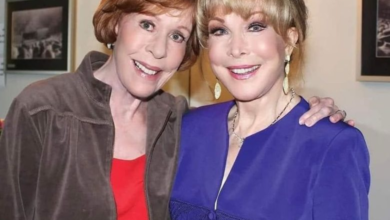What a Single Flight Revealed About the Power of Kindness and Empathy

It was the final stretch of a long, draining business trip—the kind that leaves you running purely on caffeine and autopilot, just counting down the hours until you’re home again. When I boarded that evening flight, my only goal was rest. I shoved my carry-on into the overhead bin, collapsed into my seat, and let out a sigh that felt like I’d been holding my breath for days. Once we were in the air, I leaned my seat back without a second thought, desperate to shut off my mind for a while.
Then I heard a quiet voice behind me.
“Excuse me… would you mind not reclining quite so far? It’s a little hard for me to breathe.”
Her tone was soft, almost apologetic. I turned, expecting irritation, and instead saw a woman with gentle eyes and the unmistakable curve of a pregnancy. She wasn’t angry—just uncomfortable. But I was too exhausted to care. I muttered something about needing rest too, and turned away. She gave a small, understanding smile and said nothing more.
The flight went on, but her words stuck with me. Trouble breathing. I could’ve paused, shown a bit of compassion—but I didn’t. I just shut my eyes and tuned everything else out.
When we landed, I was one of the first to stand, eager to get off the plane and away from that faint, nagging guilt in my chest. As I reached for my bag, I noticed her struggling to gather her things, moving carefully and clearly in discomfort. A flight attendant stepped in to help, and as I started down the aisle, the attendant tapped my shoulder.
“Sir,” she said evenly, “the passenger behind you wasn’t feeling well during the flight. She didn’t want to make a fuss, but sometimes small things—like not reclining—can make a big difference.”
She wasn’t reprimanding me; she was stating a truth. I hadn’t been rude, exactly—but I also hadn’t been kind. My comfort had outweighed someone else’s ease. Walking through the terminal, her words echoed louder than the boarding calls overhead.
That short flight became a mirror I hadn’t expected to face. I realized how quickly I dismissed someone else’s discomfort if it didn’t interfere with my own. How many times had I done that—driving, waiting in line, talking to someone but not really listening? It’s frightening how easy it is to overlook another person’s need.
By the time I reached baggage claim, guilt had turned into reflection. She hadn’t asked for anything dramatic—just a few inches of space. And I hadn’t offered it. Not because I couldn’t, but because I didn’t think to. Somewhere along the way, I’d learned to center myself first.
Empathy doesn’t need grand gestures. Sometimes it shows up in the smallest actions—ones that cost nothing but awareness. A held door. A patient smile. A moment of listening instead of reacting. Those quiet decisions shape the world more than any speech ever could.
That flight changed how I move through life. Now I notice what I used to overlook: the older man counting coins at the checkout, the tired cashier forcing a smile, the parent juggling a crying baby on public transit. Everyone’s carrying something unseen—and for too long, I hadn’t paid attention.
These days, I try to do better. I ask before reclining. I help with luggage. I choose calm over irritation when delays happen. I make eye contact—with flight attendants, strangers, anyone crossing my path. Kindness, I’ve learned, isn’t about performance. It’s about presence.
The world doesn’t need more talk about compassion; it needs people quietly practicing it. A simple flight can teach you more about humanity than a hundred lectures.
I think about that woman often. I never learned her name or where she was headed, but she changed me. She didn’t lecture me—she simply endured, and in doing so, reminded me what it means to see others.
Too often we tell ourselves, “It’s not my problem,” when we’re tired or distracted. I’ve done it too. But maybe being human means caring enough to make someone else’s problem—just for a moment—ours. Kindness isn’t optional; it’s a duty.
Ever since that night, every flight feels different. I see the nervous traveler clutching their ticket, the weary parent calming a toddler, the older couple double-checking their gate. I see them—and in doing so, I see who I want to be.
Real comfort isn’t found in reclining your seat—it’s found in lightening someone else’s load. Empathy isn’t weakness; it’s the essence of humanity.
That quiet flight taught me more than any book ever could. Life isn’t about getting there faster—it’s about how we treat those traveling beside us.
She showed me that kindness doesn’t need to be loud to be powerful. Sometimes, it’s as simple as staying upright. Sometimes, that small choice is enough to lift the weight of indifference—if only for a moment.



